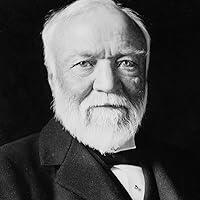
Andrew Carnegie
درباره نویسنده
Andrew Carnegie was a Scottish-American industrialist and philanthropist who played a pivotal role in the expansion of the American steel industry in the late 19th century. Born in Scotland, he emigrated to the United States with his family as a child and began working as a bobbin boy in a cotton factory. Through hard work and keen investments, he eventually founded the Carnegie Steel Company, which revolutionized steel production and made him one of the richest men of his time. Carnegie was known for his belief in the importance of education and self-improvement, which he promoted through various philanthropic efforts.
In addition to his business ventures, Carnegie dedicated much of his later life to philanthropy, establishing libraries, educational institutions, and cultural organizations across the United States and beyond. His most notable contributions include the establishment of Carnegie Mellon University and the Carnegie Corporation, which aimed to promote the advancement of knowledge and education. Carnegie's legacy is characterized by his belief in the "Gospel of Wealth," which espoused the responsibility of the wealthy to use their fortunes for the greater good of society. His influence extends beyond business, as he helped shape the modern understanding of philanthropy.